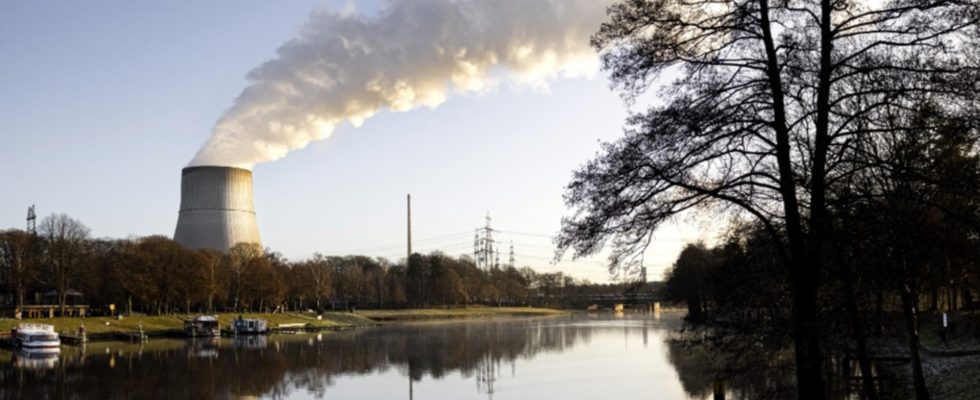Margaux Fodéré / Photo credit: Ramon van Flymen / ANP MAG / ANP via AFP
modified to
07:23, April 14, 2023
On Saturday April 15, Germany will disconnect its last three nuclear reactors in service. This decision puts the country in a delicate situation, because it will have to replace this nuclear production in the midst of an energy crisis, in particular with coal, an environmentally unfriendly alternative.
This Friday represents a historic turning point for Germany, which will disconnect its last three nuclear reactors in service. The latter were to close at the end of 2022, but benefited from a 4-month reprieve, as a result of the energy crisis. This decision puts the fourth power in a delicate situation, because it will have to compensate for this nuclear shutdown. In October 2022, these same three reactors still supplied a significant part of our neighbour’s electricity needs.
6% of electricity needs to be replaced
For the correspondent in France of the Frankfurter Allgemeinen Zeitung, Niklas Zaboji, “It was on average 6% of the need for electricity in Germany. As we are talking about an energy crisis, we could say: we must use all the centers that we have”. Especially since the energy crisis could still last next winter. Germany is then moving towards other solutions and in particular that of coal-fired power stations, which it relaunched last summer.
760 million tons of CO2
“The coalition in power wants to get out of coal at the earliest in 2030 and at the latest in 2038 in law”, explains Patrice Geoffron, professor of economics at Dauphine University. “Obviously, the current constraints risk pushing back the deadline, even if the government wishes to stick to it”. In the meantime, the resource providing more than a third of the electricity produced in the country remains coal. Bad news for the climate, as our neighbor emitted more than 760 million tonnes of CO2 last year.
